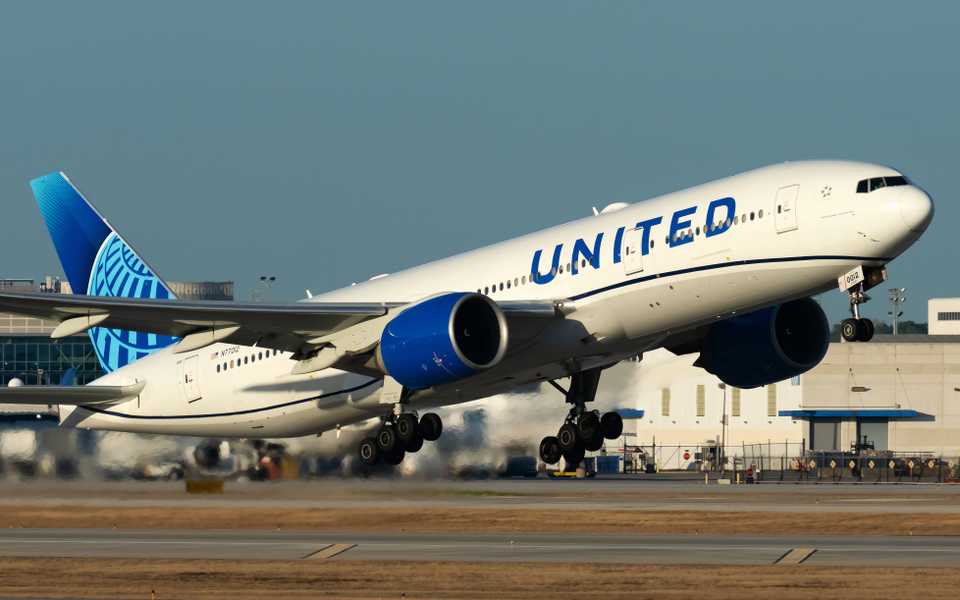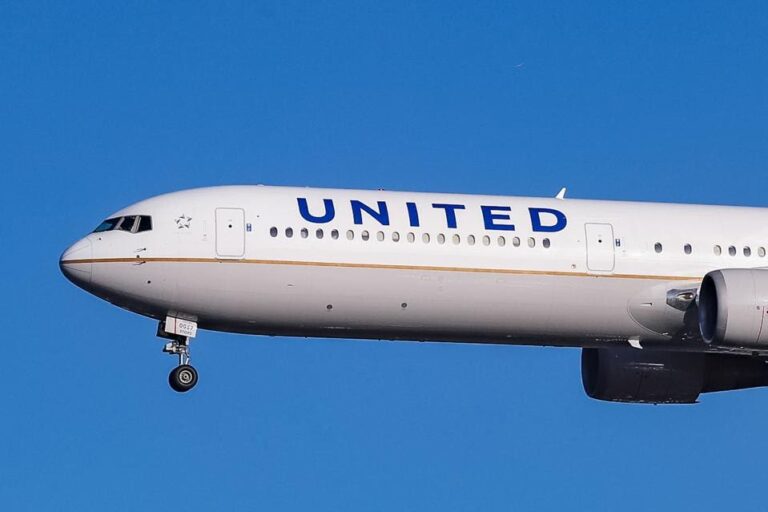United Airlines Reduces Australia Frequencies From San Francisco, Los Angeles, & Houston
United Airlines Reduces Australia Frequencies From San Francisco, Los Angeles, & Houston
United Airlines has shrunken its capacity and frequencies to Australia from its West Coast hubs in San Francisco and Los Angeles. The reduction, including some equipment changes, is reportedly set to begin at the end of October.
The Chicago-based carrier will also reduce flights from its hub in Houston. Despite the cutbacks, United’s Australia network is still large compared to its other two US legacy counterparts.
San Francisco – Sydney
Service between San Francisco International Airport (SFO) and Sydney Kingsford Smith Airport (SYD) operates once daily, but is typically boosted with an additional daily flight for the winter season to accommodate demand. According to independent aviation blog, Ishrion Aviation, United will reduce the operation of the second daily flight to just four weekly frequencies. Rather than beginning in November, the flight will only be offered from December 20th to March 5, 2025. The airline currently deploys Boeing 777-300ER on the route but will downgrade the flights to the 777-200ER.
United’s 777-300ER is its largest aircraft by passenger capacity and is equipped with the most premium seating. The aircraft accommodates a total of 350 passengers in a three-class format. The premium cabins have 60 Polaris seats that convert to lie-flat beds and 24 Premium Plus seats, the airline’s equivalent to premium economy. Economy is equipped with 266 seats. 62 seats are Economy Plus seats with extra legroom.
When deployment between SFO and SYD shifts to the 777-200ER, the route will lose 74 seats per flight. The smaller variant accommodates a total of 276 passengers in three classes. United Polaris is equipped with 50 lie-flat seats, while Premium Plus has 24 recliner seats. The economy cabin has 202 seats, 46 of which, are designated as Economy Plus.
Qantas also flies the SFO-SYD route, but its operation is less than half of United’s frequencies. According to aviation data and analytics firm Cirium, United has a total of 72 flights scheduled on the route in December – 36 in each direction. Qantas will only operate 28 flights – 14 each way.
Keeping the Dreamliner rather than the -300ER
United is the only airline flying nonstop between SFO and Melbourne Airport (MEL). Currently, the route is operated daily by the 787-9 Dreamliner. As of last week, the carrier planned to replace the 787-9 with the 777-300ER on October 26th, which would add more seats on the route, but those plans have since changed. Instead, the 787-9 will remain on the route.
The second-largest Dreamliner, but most popular variant, has a capacity of 257 passengers. The Polaris cabin has 48 lie-flat seats, while Premium Plus has 21 seats. The remaining 188 seats comprise the Economy cabin – 39 are Economy Plus seats. United’s decision to keep the 787-9 on the route equates to a reduction of 93 seats per flight or 5,580 monthly seats from its original capacity plans.
From Los Angeles & Houston
According to aviation watchdog JonNYC, United will also reduce frequencies between Los Angeles International Airport (LAX) and MEL beginning in November. The airline had daily flights scheduled with the 787-9 as of last week, but now, the frequencies have been downsized to three times weekly, resulting in 13 flights each way, or only 26 total flights during the month. Qantas has the majority of the market share on the route. The carrier will continue with daily flights on either its 787-9s or Airbus A380s.
Additionally, United will trim daily 787-9 flights between George Bush Intercontinental Airport (IAH) and SYD to three weekly flights in November and December. Although the carrier will drastically reduce capacity to Australia this fall, its network remains as the largest compared to American Airlines and Delta Air Lines combined. According to JonNYC, United has six routes to the Land Down Under – five of which are year-round. American and Delta only have two routes, with only one of them offered continuously throughout the year.
United Airlines Reduces Australia Frequencies From San Francisco, Los Angeles, & Houston
United Airlines has shrunken its capacity and frequencies to Australia from its West Coast hubs in San Francisco and Los Angeles. The reduction, including some equipment changes, is reportedly set to begin at the end of October.
The Chicago-based carrier will also reduce flights from its hub in Houston. Despite the cutbacks, United’s Australia network is still large compared to its other two US legacy counterparts.
San Francisco – Sydney
Service between San Francisco International Airport (SFO) and Sydney Kingsford Smith Airport (SYD) operates once daily, but is typically boosted with an additional daily flight for the winter season to accommodate demand. According to independent aviation blog, Ishrion Aviation, United will reduce the operation of the second daily flight to just four weekly frequencies. Rather than beginning in November, the flight will only be offered from December 20th to March 5, 2025. The airline currently deploys Boeing 777-300ER on the route but will downgrade the flights to the 777-200ER.
United’s 777-300ER is its largest aircraft by passenger capacity and is equipped with the most premium seating. The aircraft accommodates a total of 350 passengers in a three-class format. The premium cabins have 60 Polaris seats that convert to lie-flat beds and 24 Premium Plus seats, the airline’s equivalent to premium economy. Economy is equipped with 266 seats. 62 seats are Economy Plus seats with extra legroom.
When deployment between SFO and SYD shifts to the 777-200ER, the route will lose 74 seats per flight. The smaller variant accommodates a total of 276 passengers in three classes. United Polaris is equipped with 50 lie-flat seats, while Premium Plus has 24 recliner seats. The economy cabin has 202 seats, 46 of which, are designated as Economy Plus.
Qantas also flies the SFO-SYD route, but its operation is less than half of United’s frequencies. According to aviation data and analytics firm Cirium, United has a total of 72 flights scheduled on the route in December – 36 in each direction. Qantas will only operate 28 flights – 14 each way.
Keeping the Dreamliner rather than the -300ER
United is the only airline flying nonstop between SFO and Melbourne Airport (MEL). Currently, the route is operated daily by the 787-9 Dreamliner. As of last week, the carrier planned to replace the 787-9 with the 777-300ER on October 26th, which would add more seats on the route, but those plans have since changed. Instead, the 787-9 will remain on the route.
The second-largest Dreamliner, but most popular variant, has a capacity of 257 passengers. The Polaris cabin has 48 lie-flat seats, while Premium Plus has 21 seats. The remaining 188 seats comprise the Economy cabin – 39 are Economy Plus seats. United’s decision to keep the 787-9 on the route equates to a reduction of 93 seats per flight or 5,580 monthly seats from its original capacity plans.
From Los Angeles & Houston
According to aviation watchdog JonNYC, United will also reduce frequencies between Los Angeles International Airport (LAX) and MEL beginning in November. The airline had daily flights scheduled with the 787-9 as of last week, but now, the frequencies have been downsized to three times weekly, resulting in 13 flights each way, or only 26 total flights during the month. Qantas has the majority of the market share on the route. The carrier will continue with daily flights on either its 787-9s or Airbus A380s.
Additionally, United will trim daily 787-9 flights between George Bush Intercontinental Airport (IAH) and SYD to three weekly flights in November and December. Although the carrier will drastically reduce capacity to Australia this fall, its network remains as the largest compared to American Airlines and Delta Air Lines combined. According to JonNYC, United has six routes to the Land Down Under – five of which are year-round. American and Delta only have two routes, with only one of them offered continuously throughout the year.
S





